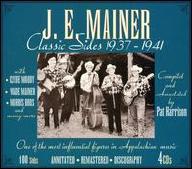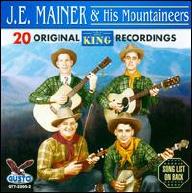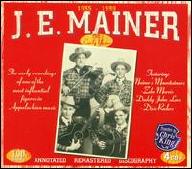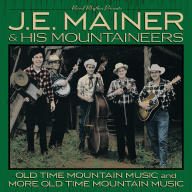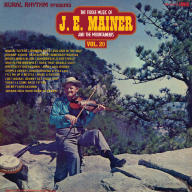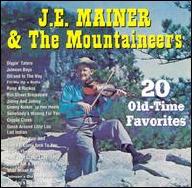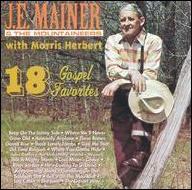By the early '30s, the commercial potential of country music on radio had been amply demonstrated, and Charlotte's Crazy Water Crystals Company (a purveyor of bottled water containing mineral salts of dubious medical value) offered Mainer's Mountaineers a series of promotional appearances and a slot on Charlotte's powerful WBT radio station. The group, now featuring John Love and Zeke Morris on guitars, was re-christened the Crazy Mountaineers and remained on WBT for four years. The fame they attained interested record companies in turn, and the group recorded its first sides for the Bluebird label in Atlanta in 1935.
One of the 14 songs recorded at that session was Maple on the Hill, a turn-of-the-century sentimental standard originally composed by the African-American Cincinnati janitor-composer Gussie Davis. The song had been introduced to country audiences by both Vernon Dalhart and the Carter Family, but the mournful warmth of J.E.'s fiddle and Wade's banjo made it a country standard. In 1936, Wade and Zeke Morris left to form the Sons of the Mountaineers, while J.E. and his new lineup, consisting of Snuffy Jenkins, George Morris, and Leonard Stokes, spent over a year playing on radio stations in Spartanburg and Columbia. In 1939, with new musicians once again, Mainer recorded once more for Bluebird with Clyde Moody and Jay Hugh Hall. After World War II, Mainer became one of the first artists signed to the independent Cincinnati label King and made recordings with a band featuring his sons Curly and Glenn. New musical trends were in the air by then, however, and Mainer returned home to Concord. For the next 15 years he made mostly local appearances.
The Mountaineers were rediscovered during the folk revival in 1962 by Chris Strachwitz of the California-based Arhoolie label. At that time, Mainer's Mountaineers recorded The Legendary Family From the Blue Ridge Mountains, which introduced Mainer's music to a whole new generation. King reissued some of the Mountaineers recordings (such as Good Ole Mountain Music) in the early '60s, and over the course of that decade Mainer recorded several more albums and made appearances on the radio and at festivals. He continued to perform until his death in 1971. ~ James Manheim, Rovi


